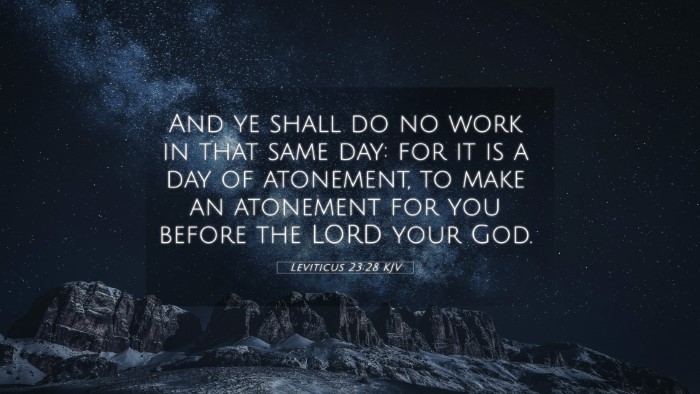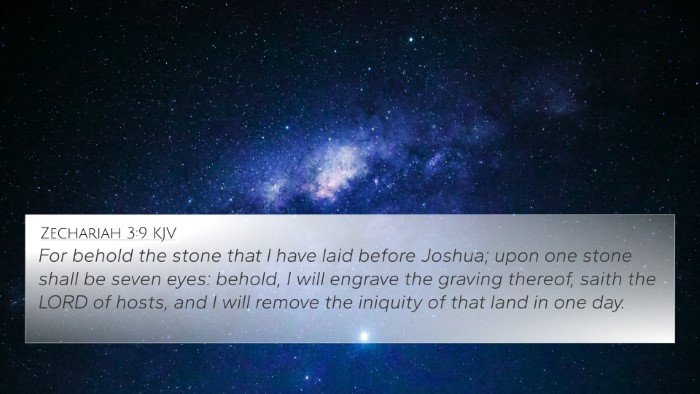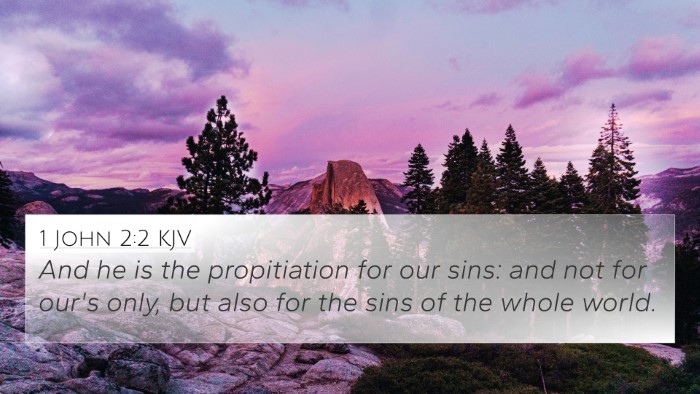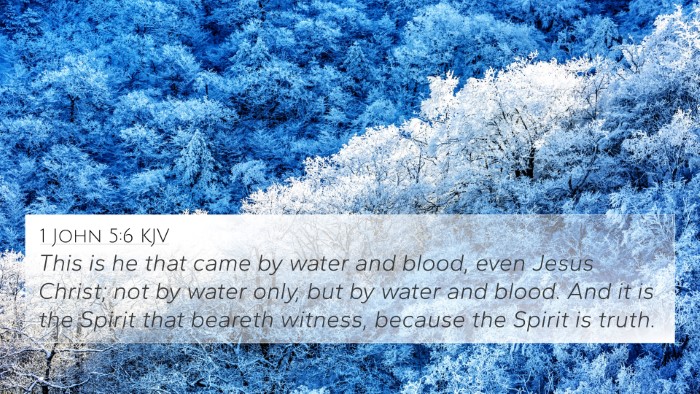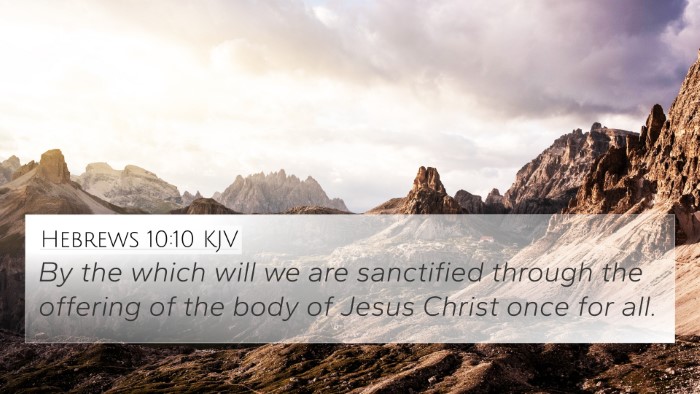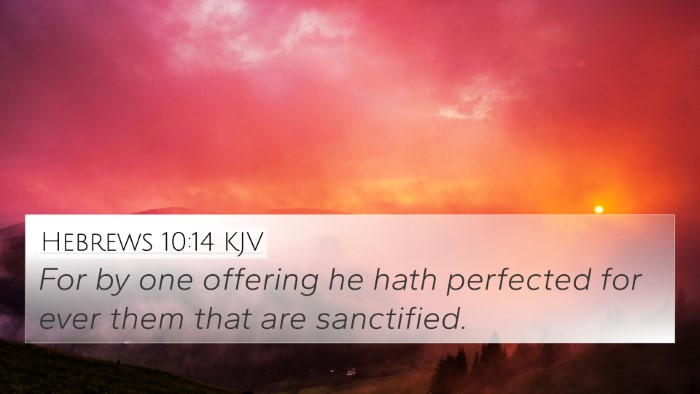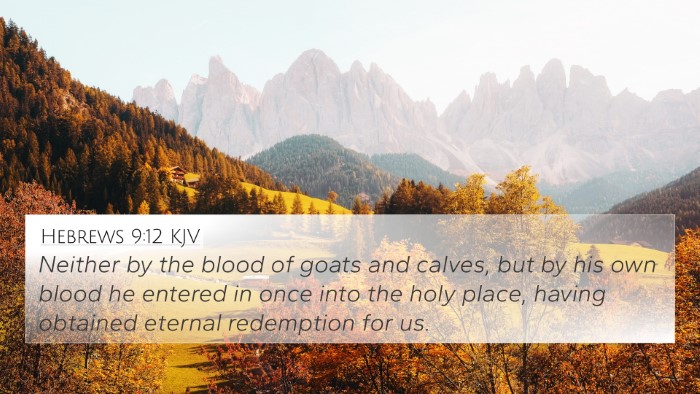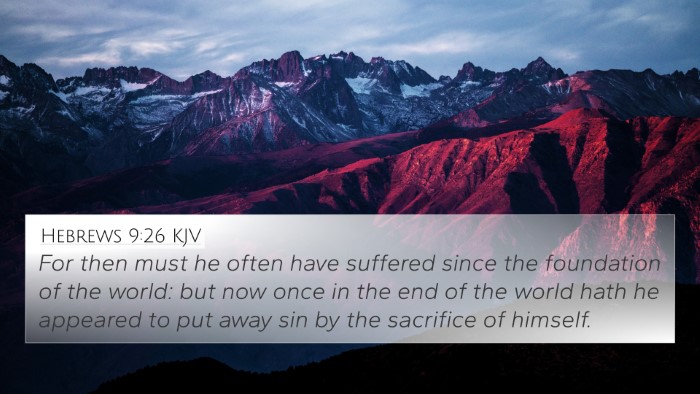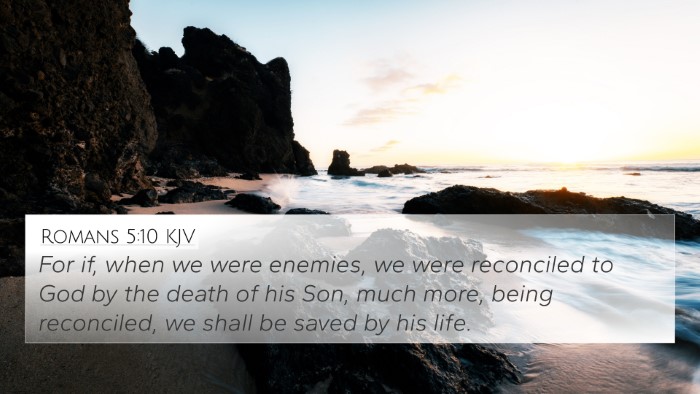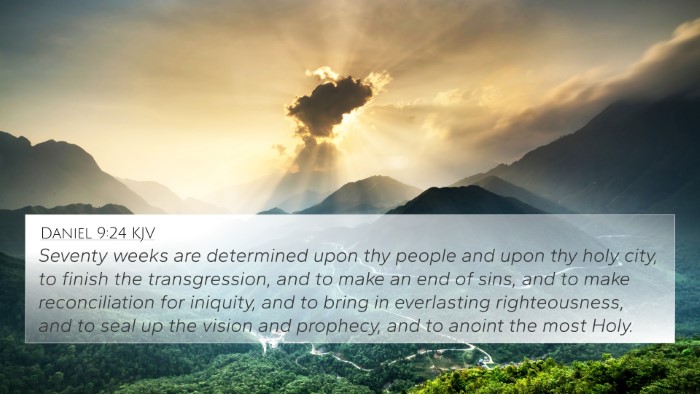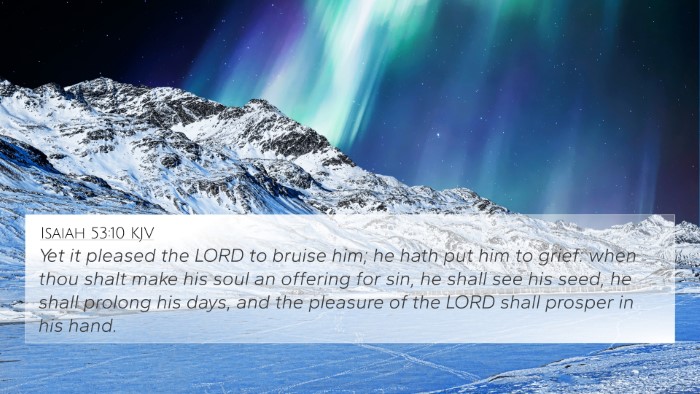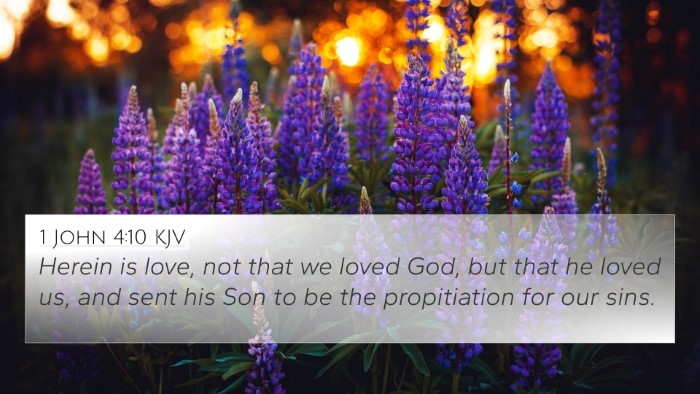Bible Verse Meaning of Leviticus 23:28
Leviticus 23:28: "And you shall not do any work on that very day, for it is a Day of Atonement, to make atonement for you before the Lord your God."
Summary of Interpretation
This verse refers to the solemn observance of the Day of Atonement, known as Yom Kippur, which was a significant feast in the Jewish religious calendar. It emphasizes the importance of rest and repentance on this day, as it is dedicated to atonement and reconciliation with God.
Thematic Significance
- Day of Atonement: The term "Day of Atonement" itself highlights the need for making amends with God and seeking forgiveness for sins.
- Rest from Work: The command to abstain from work during this day signifies the sacredness of the occasion, allowing individuals to focus on spiritual reflection and repentance.
- Divine Relationship: The phrase "to make atonement for you" underscores the concept that atonement is essential for maintaining a right relationship with God.
Commentary Insights
Matthew Henry: He emphasizes that the Day of Atonement is a divine appointment for national humbling and seeking forgiveness. It points to the necessity of approaching God with contrite hearts, recognizing His holiness and the sinfulness of humanity.
Albert Barnes: Barnes notes that the prohibition of work highlights the dedication of the day to God. It is not merely a day of fasting but a time for spiritual renewal and deep reflection on personal and communal sins.
Adam Clarke: Clarke discusses the significance of atonement. He alludes to the sacrificial system, which is an important theme in Leviticus, explaining that this day was appointed by God for the reconciliation of the people with Himself.
Bible Verse Cross-References
Leviticus 23:28 has several important connections within biblical texts:
- Leviticus 16:29-31: Discusses the instructions for the Day of Atonement, emphasizing the need for fasting and reflection.
- Hebrews 9:7: References the high priest’s role in making atonement, linking the Old Testament practice to New Testament understanding.
- Romans 5:10: Illustrates the concept of reconciliation with God through Jesus Christ, echoing the themes of atonement.
- Acts 3:19: Calls for repentance and turning to God for the forgiveness of sins, aligning with the purpose of the Day of Atonement.
- Isaiah 53:5: Foretells the atoning sacrifice of Christ, connecting the prophetic vision to the practices of the Old Testament.
- Psalm 51:10-12: A heartfelt prayer for cleansing and renewal, resonating with the themes of repentance seen in Leviticus 23.
- 1 John 1:9: Emphasizes the assurance of forgiveness and purification upon confession, which can be seen as reflecting the spirit of the Day of Atonement.
Connections Between Bible Verses
This verse allows for a comparative analysis of its themes with various scriptures, providing rich insights into the concept of atonement and holiness. Notably, the strict observance of the Day of Atonement in Leviticus finds parallels in the overall biblical narrative of redemption and forgiveness through Christ.
For instance, the Day of Atonement anticipates the ultimate atonement made by Jesus. Understanding Leviticus 23:28 invites deeper reflection on how the Old Testament practices inform and shape New Testament teachings on sin and redemption.
Tools for Bible Cross-Referencing
To explore these connections further, various tools are available:
- Bible Concordance: A comprehensive index of words and phrases found in the Bible, helping readers locate verses quickly.
- Bible Cross-Reference Guide: Offers side-by-side comparisons of related scriptures, guiding thematic studies.
- Cross-Reference Bible Study: A method for investigating interconnections between different passages across both Testaments.
Conclusion
Leviticus 23:28 serves as a profound reminder of the necessity of atonement, the call to repentance, and the importance of setting aside time for God. It invites believers to reflect on their relationship with God and the means by which that relationship is restored and maintained.
Thus, when studying scripture, understanding these connections and utilizing various tools for cross-referencing can enhance our comprehension of biblical themes and their interrelatedness, reinforcing the integrity of God's redemptive narrative throughout the Bible.

